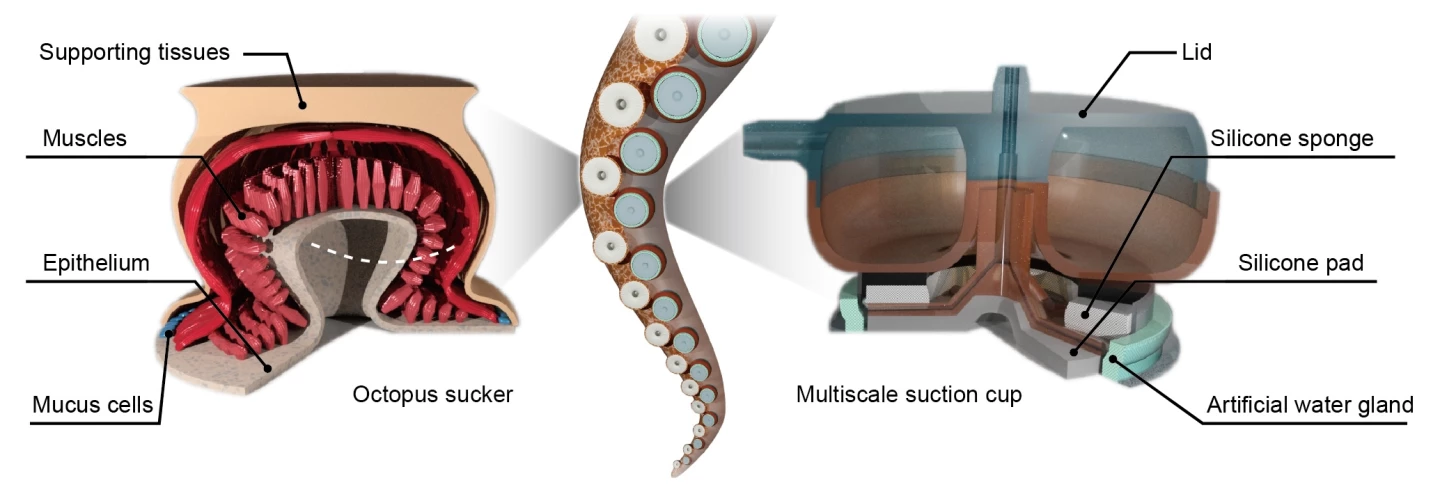A new octopus-sucker-inspired suction cup could make it much easier and more energy-efficient for robots to lift and release rough-surfaced objects. The secret lies in using water to mimic octopus mucus.
Unlike most manmade suction cups, octopus suckers have no problem forming a seal on objects with rough, curved or otherwise irregular surfaces, such as rocks. For some time now, it has been thought that this effect was due almost entirely to the soft, malleable nature of the sucker tissue.
Dr. Tianqi Yue and colleagues at the University of Bristol, however, wondered if the importance of the mucus secreted by those suckers was being overlooked. In order to find out, they built an artificial octopus sucker.

The device has the same cup-like shape as its natural counterpart, and is composed mainly of multiple overlapping layers of soft silicone. These allow it to mostly conform to the contours of rough surfaces, much like an octopus sucker.
That said, a number of micron-sized gaps still remain between the device and the surface upon initial contact. To fill these, water is injected through an attached tube. That liquid flows into a fluidic system which forms a ring around the base of the cup, much like the mucus cells form a ring around the base of an octopus sucker.
As the water seeps out of tiny openings in the fluidic system it fills all the minuscule gaps, forming a perfect seal. The cup is then able to lift and hold onto the object indefinitely.
Because pressure is constantly being maintained on the water in the tube, any small amounts that leak out are instantly replaced. And when it's time to release the object, the seal can be broken simply by lifting one edge of the cup.

"We believe the presented multi-scale adaptive suction mechanism is a powerful new adaptive suction strategy which may be instrumental in the development of versatile soft adhesion," says Tianqi. "Current industrial solutions use always-on air pumps to actively generate the suction, however these are noisy and waste energy."
A paper on the suction cup – which is demonstrated in the video below – was recently published in the journal PNAS. And as an interesting side note, scientists at the University of Illinois have been working on an artificial octopus sucker of their own, which utilizes a temperature-sensitive hydrogel.
Source: University of Bristol






